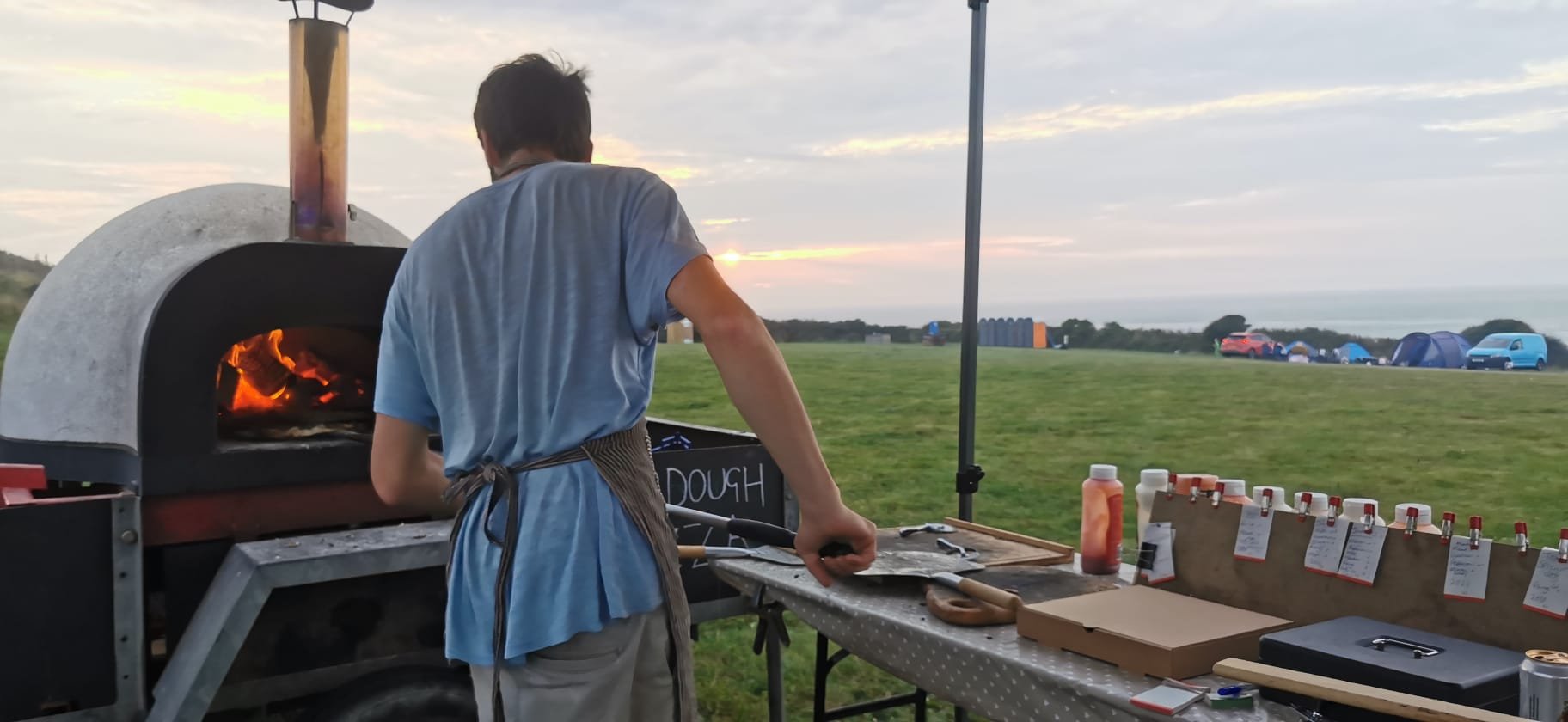
Torth Y Tir - Bread & Wheat for the people of Pembrokeshire
Torth Y Tir is a group of dedicated, self-confessed, wheat lovers who voted to commit to taking on the Community Benefit Society (CBS) in 2021, saving it from moving out from Pembrokeshire, and keeping it in the community.
We believe that everyone should have access to healthy, nourishing, locally-produced, food, while also supporting local agriculture & growers. Together - with the support of local wheat growers, millers, a dedicated team of volunteers and the wonderful community around us - we are keeping the dream alive to achieve our goal of growing, milling, baking and distributing bread at a fair cost to our community here in St Davids, Pembrokeshire, and in the surrounding areas.
We are a registered Community Benefit Society (CBS), which means we are owned and run by our members, the local community. We host regular AGM, and other events, to connect them and involve them with Torth Y Tir.
If you’d like to learn more about becoming a member, please get in touch with us.
-
Since the new directorship was elected in 2021, we have been on a journey to build a sustainable, long-term vision and plan for Torth Y Tir. Which means closely collaborating with others; working with regenerative farmers, focusing on food security, supporting local/circular economy, and consulting with expererts across Wales -and beyond- in order to sustainably grow, produce, and deliver good nutritional food and happy eating across the Peninsula.
-
Guy Dinmore (Treasurer)
Alma Joensen (Chair)
Rick Coldman (Secretary)
Gordon Main
Gerald Miles
Jack Wheatley
-
The international food sovereignty movement has developed six defining principles. Food sovereignty:
Focuses on food for people: The right to food which is healthy and culturally appropriate is the basic legal demand underpinning food sovereignty. Guaranteeing it requires policies which support diversified food production in each region and country. Food is not simply another commodity to be traded or speculated on for profit.
Values food providers: Many smallholder farmers suffer violence, marginalisation and racism from corporate landowners and governments. People are often pushed off their land by mining concerns or agribusiness. Agricultural workers can face severe exploitation and even bonded labour. Although women produce most of the food in the global south, their role and knowledge are often ignored, and their rights to resources and as workers are violated. Food sovereignty asserts food providers’ right to live and work in dignity.
Localises food systems: Food must be seen primarily as sustenance for the community and only secondarily as something to be traded. Under food sovereignty, local and regional provision takes precedence over supplying distant markets, and export-orientated agriculture is rejected. The ‘free trade’ policies which prevent developing countries from protecting their own agriculture, for example through subsidies and tariffs, are also inimical to food sovereignty.
Puts control locally: Food sovereignty places control over territory, land, grazing, water, seeds, livestock and fish populations on local food providers and respects their rights. They can use and share them in socially and environmentally sustainable ways which conserve diversity. Privatisation of such resources, for example through intellectual property rights regimes or commercial contracts, is explicitly rejected.
Builds knowledge and skills: Technologies, such as genetic engineering, that undermine food providers’ ability to develop and pass on knowledge and skills needed for localised food systems are rejected. Instead, food sovereignty calls for appropriate research systems to support the development of agricultural knowledge and skills.
Works with nature: Food sovereignty requires production and distribution systems that protect natural resources and reduce greenhouse gas emissions, avoiding energy-intensive industrial methods that damage the environment and the health of those that inhabit it.
Learn more about food sovereignty here: https://www.globaljustice.org.uk/our-campaigns/food/what-is-food-sovereignty/
-
To support the community to access locally made, affordable, nutritious bread and flour.
To advocate for a localised, sustainable, food-chain system.
Support local, regenerative growers and farmers.
Fight to keep heritage wheat thriving for future generations to enjoy.
To honour and expand partnerships and collaborations with others.
To work as collectively as possible with members of Torth Y Tir, and the community.
To inspire more about saving heritage crop varieties, regenerative growing, harvesting, processing, milling and baking heritage grains.
-
Record of registration and documents of Torth y Tir on the Mutuals Public Register of the Financial Conduct Authority (FCA) can be found here.
You can view our 2022 financial records here.
What We Do
-
TYT Pizza
We have two wood-fired ovens. Over the 2022 season, we have been feeding locals & visitors to St Davids, with our delicious, locally produced, hand-made, sourdough pizzas.
-

TYT Flour
We sell our flour on the Peninsula Food Hub. The Food Hub is ideal for those living or visiting the St Davids community, or surrounding areas. If you don’t live in the area, and would like to purchase our bread, get in touch with us via the contact forms.


